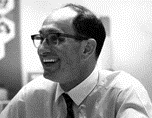ADAPT Program (Accent on Developing Abstract Processes of Thought)

Physics Teaching and the Development of Reasoning: Workshop Materials
Date of this Version
1975
Document Type
Article
Abstract
It is quite clear from the earlier modules in this workshop that a teacher's awareness of students' patterns of reasoning will influence his choice of subject matter, level of presentation, selection of text, and assignment of homework problems. We shall now describe some ways in which the learning activities can be planned so as to enhance the opportunities for self-regulation after a student is introduced to a new idea. On the basis of Piaget’s developmental theory, concrete learning activities play a central role in the improvement of a student's reasoning. The physics laboratory, therefore, is an especially important part of instruction. Does it make any difference what kind of laboratory exercise we ask a student to perform? We believe that the answer is yes, and we shall describe what we have learned from Piaget’s work that is applicable to labs and other aspects of teaching. We have called the resulting pattern of instruction a “learning cycle," since it may be used repeatedly for each successive topic or lab session in a course. This module provides for a laboratory investigation of physical pendula and two essays: on the learning cycle and on the physics laboratory.


Comments
Copyright © 1975 American Association of Physics Teachers. Used by permission.